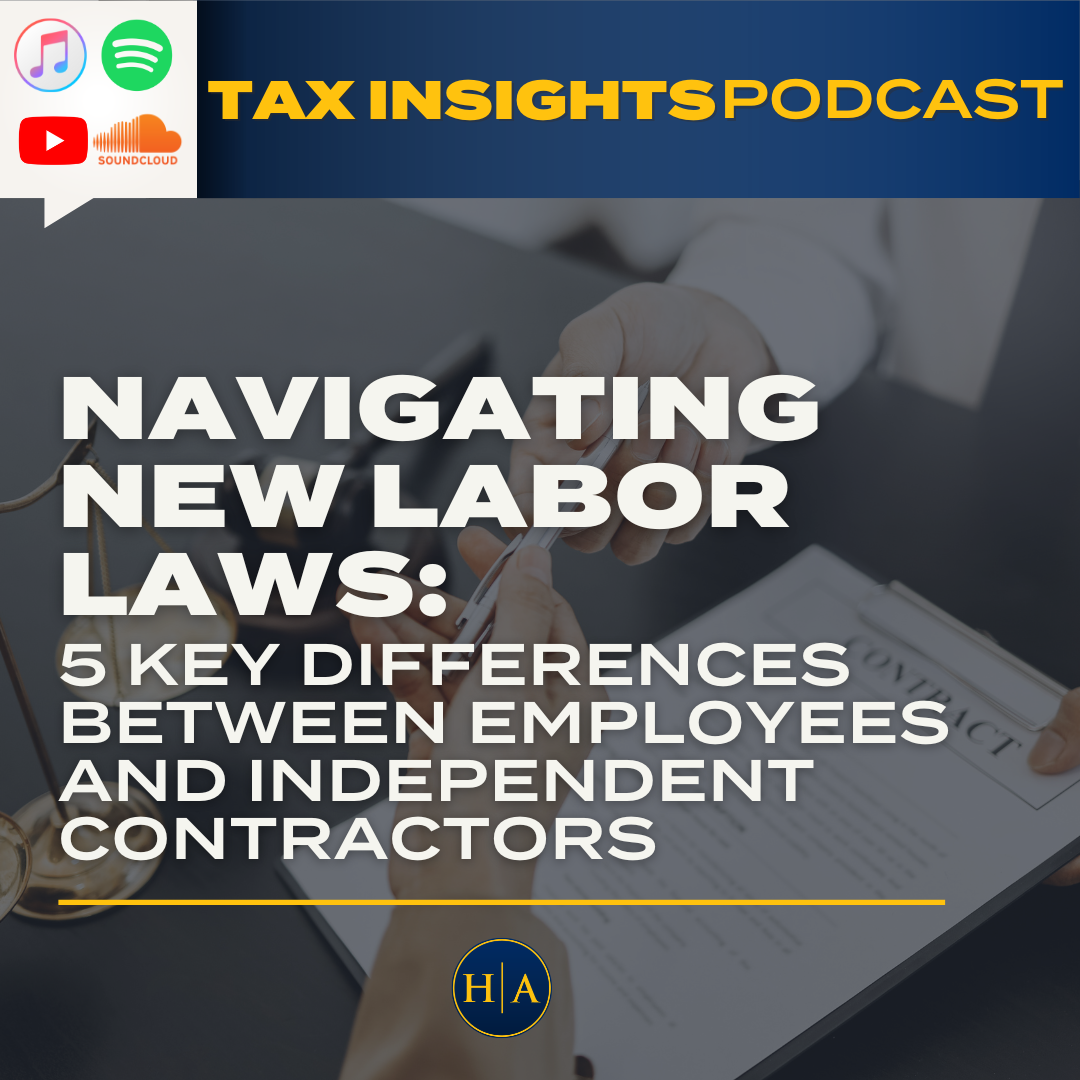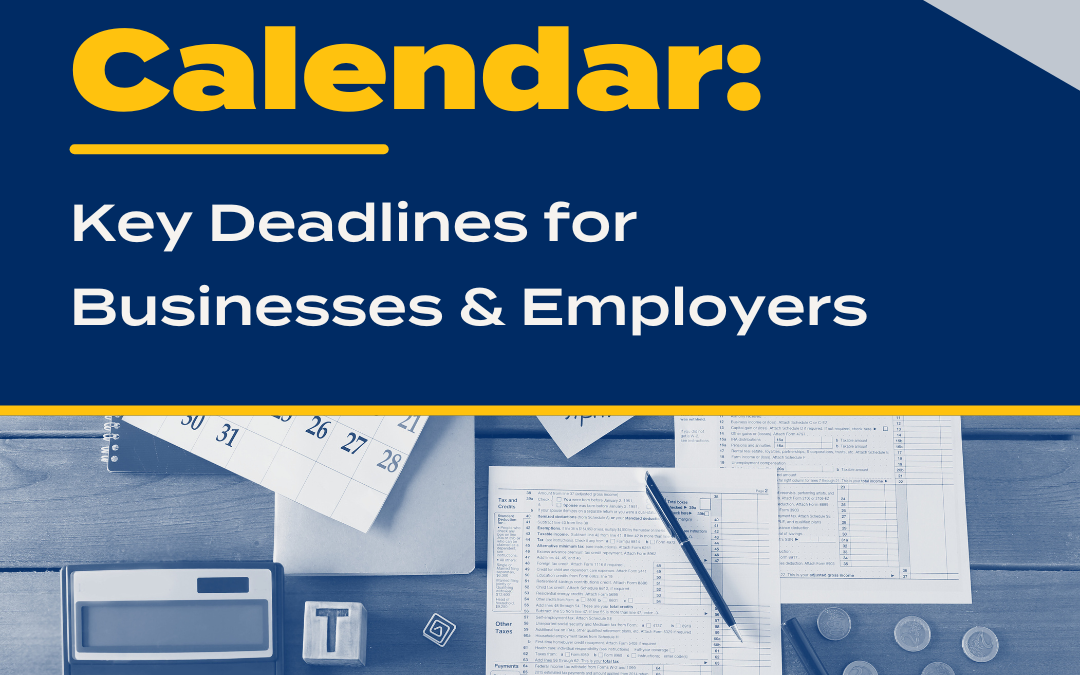Welcome to the Tax Insights Podcast, where we break down complex tax topics into bite-sized how-tos. In this episode of Tax Insights Podcast, Jeff Dvorachek explores the new Department of Labor Joint Employer Rule. The joint employer rule determines when multiple employers share responsibility for an employee’s working conditions and legal obligations. Tune in now to decode the regulations and complexities of the new law.
Today on Tax Insights, Jeff dives into the new Department of Labor laws, exploring the 5 distinctions between employees and independent contractors. Join us as we navigate through these regulations, deciphering the criteria that define the nature of work relationships, and unraveling the complexities of these laws. Let’s tune in.
Host: Hey, Jeff, on today’s program, we want to talk about some new department of labor laws more specifically when you have an employee compared to an independent contractor. Walk us through this because there’s some new laws here.
Jeff: Yeah, so, no, we’ve talked in the past, Terry, about some ways that you can get information from Hawkins Ash. I noticed this one came from our tax and business alert this week and I found it interesting so figured, well, let’s talk about it a little bit. You’re right. It’s some new department of labor rules and tests, actually, to determine when is a person really an employee and when are they an independent contractor? Now, when you think of an independent contractor, you think of somebody that runs their own business. So a lot of these rules incorporate, are they really working for somebody else or are they truly running their own business?
Host: Okay. So how would one make those determinations?
Jeff: What the department of labor said is they’re going to look at five different things to determine whether somebody is an employee or an independent contractor.
Host: Okay.
Jeff: So nothing weighs more than another, these are just five things that could potentially sway it one way or the other. Now the first one is, you know, when you think of a small business, Terry, what do you want to do in a small business? You want to make a profit, right?
Host: Correct.
Jeff: That’s why you’re in business.
Host: Exactly.
Jeff: So that’s test number one is, is the workers opportunity to actually make a profit for themselves rather than just collect a paycheck that’s given to them by, let’s say, an employer. And you know, that depends on a lot of different things. You know, your, your skills, how much effort you’re looking to put in it, a lot of different things. But that looking for profit is one of the things that the DOL really looks at.
Host: Okay. What else?
Jeff: They also look at the investment that you put in. So you know, when you run your own business, you have to buy your own vehicles, equipment, you know, supplies, you have to buy that stuff for yourself. But when you’re an employee, a lot of that stuff is provided by the employer. So that’s the other thing that they’re looking at. It’s actually the investment that’s put into this enterprise by either the, you know, the worker or the potential employer, you know, who puts in more of the supplies and materials and things like that?
Host: Sure. It’s an investment and that makes sense. What else do they are they looking at or comparing to?
Jeff: They’re looking at kind of the, what they call the degree of permanence of the work relationship. So in other words, you know, if you’re only working for this one employer and that’s all that you do compared to if you have a number of different employers that you work for, you know, that can make the determination on whether you’re an employee of this one employer or if you’re an independent contractor for a number of different companies.
Host: Okay. Jeff, we got about another minute left here. Anything else here that they’re looking at that we should be aware of?
Jeff: Sure. Let’s just look at the last couple. And that is the extent to which the work is what they call an integral part of the employer’s business. So if you’re, if you’re working, you know, as an integral part rather than just a subcontractor, that may have something to do with it. And also the worker’s skill and initiative is the sixth item that they look at. Now, once again, these are departmental labor rules. So the IRS does it a little bit differently. And why don’t we talk about that next week since we’re running out of time?
Host: Absolutely. Jeff, in the meantime, for our listeners, if they want to reach out to you guys over at Hawkins Ash, where do they go?
Jeff: I would go right to our website, Hawkins Ash.CPA and go to that CPA HQ section.





